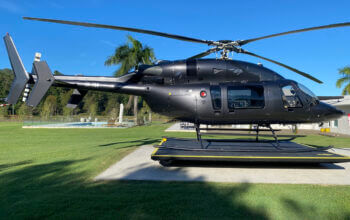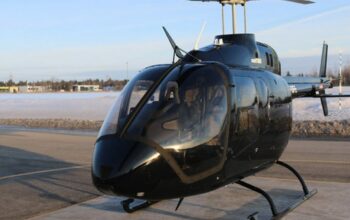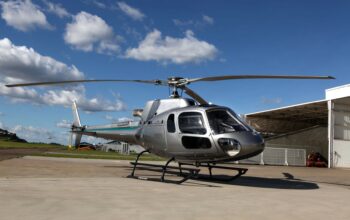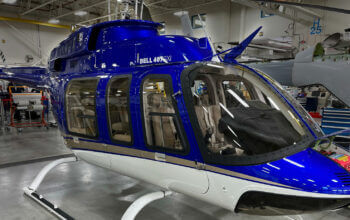Estimated reading time 5 minutes, 47 seconds.
De Havilland Aircraft of Canada Limited and Pratt & Whitney Canada (P&WC) announced on July 15 they are joining forces to integrate hybrid-electric technology into a De Havilland Dash 8-100 flight demonstrator. P&WC intends to advance its hybrid-electric propulsion (HEP) technology and flight demonstrator program as part of a $163 million investment, supported by the governments of Canada and Quebec, to drive improvements in aircraft efficiency.
The HEP technology is expected to optimize performance across the different phases of flight, allowing the Dash 8-100 demonstrator to “target a 30 percent reduction in fuel burn and CO2 emissions, compared to a modern regional turboprop airliner,” P&WC said in a press release.
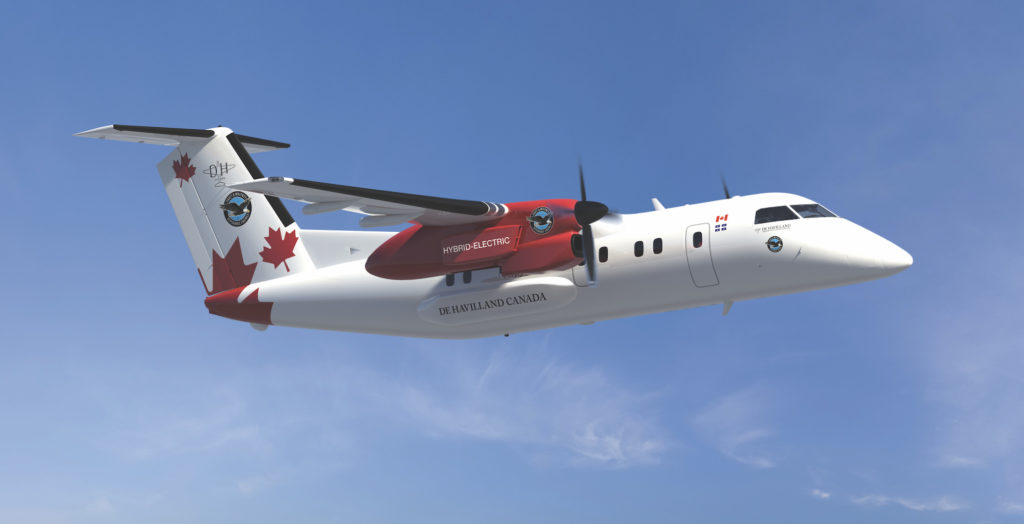
Overall, the flight demonstrator will feature “advanced technologies” developed by P&WC and Collins Aerospace. Specifically, the Dash 8-100 will include an advanced electric motor and controller from Collins. Additionally, in support of the hybrid-electric technology and batteries within the flight demonstrator, De Havilland Canada will design a modified nacelle structure to house the technology, and will also “be responsible for the cockpit interfaces needed to safely monitor and control” the HEP technology.
“De Havilland Canada has a legacy of innovation that has supported aviation in Canada and around the world for more than 90 years, and we are immensely proud to be the first manufacturer of regional aircraft supporting the development of hybrid-electric propulsion technology,” said Dave Riggs, De Havilland Canada’s chief transformation officer.
“The robust and proven airframe of the Dash 8-100 provides a reliable platform to support the development of Pratt & Whitney Canada’s new hybrid-electric propulsion technology, and we anticipate that the technology will be scalable for operation on larger Dash 8 aircraft models as well,” he added.
“Our collaboration with Pratt & Whitney Canada is well aligned with other significant investments being undertaken by De Havilland Canada to ensure that Dash 8 Series turboprops are positioned to continue supporting commercial aviation, cargo transport, and missionized operations well into the future.”
In addition to lowering costs for Dash 8 operators and enhancing sustainability in the industry, the project offers an opportunity for Canada to demonstrate “environmental leadership” in the aviation sector.
According to P&WC, “This project is a successor to Project 804, launched in 2019 as a joint development program between [P&WC and Collins], and provides a solid foundation for this new demonstrator program to build upon.”
P&WC hasn’t revealed any details regarding the gas turbine engine it will use in the new hybrid-electric system, but the power required is available within the PT6A-67 turboprop engine family which powers aircraft such as the Pilatus PC-12 and Leonardo AW609 tiltrotor. The PW100 produced primarily for regional aircraft spans the 1,800 to 5,000 hp range.
The engine manufacturer emphasized that developing HEP technology is a “core element” of its strategy to make aviation more sustainable. As such, the company plans to continue to advance the efficiency of gas turbine engines across its portfolio.
“Pratt & Whitney Canada is proud to be part of Canada’s green recovery plan and to be collaborating with De Havilland Canada in the development of the hybrid-electric propulsion technology by utilizing a Dash 8-100 regional aircraft as our flying demonstrator,” said Maria Della Posta, president, P&WC.
P&WC is targeting ground testing for 2022, with flight testing of the Dash 8-100 demonstrator expected to take place in 2024.
De Havilland said it will conduct the flight test and demonstration program and interface directly with Transport Canada for the experimental flight permit.
To date, approximately 1,300 Dash 8s have been produced, including 672 “classic” models (Dash 8-100/200/300) and 630 Dash 8-400s. P&WC says the market for the hybrid system includes new clean sheet aircraft as well as older models.
In February 2021, De Havilland Canada announced it was pausing Dash 8-400 production this summer due to a lack of orders.
With files from Ken Swartz
